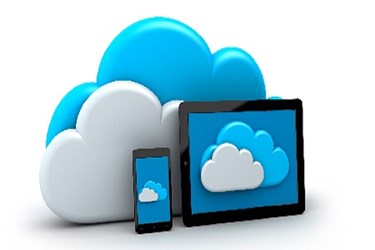5 Advantages Of Cloud-Based ERP Solutions For Food Producers
By Laurel Maloy, contributing writer, Food Online

Cloud-based, resource-planning software solutions are emerging as the number one tool for even the smallest food supply chain provider
The definition of Enterprise Resource Planning (ERP) is, stated simply: a broad set of activities helping a company manage the important parts of its business. Typically, an ERP system includes modules to manage product planning, inventories, customer service, parts purchasing, vendor relationships, and order tracking. It will almost always rely upon a relational database system, one more techy word for spending more money on hardware, implementation, employee training, and database maintenance. Until recently, ERP has been labor intensive, extremely costly, and mind-boggling to food producers still coming to terms with the value of digital solutions. The price tag alone is enough to discourage a longer look.
Enter the cloud! Okay, admittedly, this is one more techy term that confuses more people than it excites, though it should really be the other way around. Its simplest definition is: a place to store and access programs and information through the Internet, instead of on your computer’s hard drive. What this means is that the cloud has absolutely nothing to do with your hard drive, a network, or a local server. It is simply a metaphor for the Internet; something the majority of people, from rural farmers to Wall Street execs, uses every day. What are its advantages?
- No additional hardware. You can access the cloud from virtually any computer, tablet, or smartphone at any time, from anywhere — out in the field, walking the plant, sitting in the office, even lying out at the beach
- Hardware maintenance becomes a non-issue
- It is inexpensive and it doesn’t require an IT team or a lengthy contract to maintain
- Software solutions utilizing the cloud integrate all aspects of your business
- Software developed for cloud use is infinitely more user-friendly than ERP systems
Some of the most common examples of cloud-based computing include Google Drive and Apple iCloud. There is also a huge selection of free cloud-based Web apps for notebooks and smartphones. Windows 8 is an app-based operating system making cloud access and ultimately, its popularity, soar.
The cloud has enabled software producers to remove complexity from the recipe for success. Without the confines of the hard drive, the network, and the main server, business software is much less expensive, easily accessible by those in your company who need to know, and provides much more functionality. Recordkeeping and traceability, expected to be the most difficult and costly aspect of FSMA, is part of the package. It is integrated, along with vendor alliances, shipping schedules, preventive controls and inventory. Many software programs allow easy, one-step functionality, with a small monthly subscription fee.
Tips For Complying With New Food Safety Regulations
FSMA implementation has spurred software developers to produce more creative solutions, and cloud computing makes it possible for everyone to benefit. The positive results are often apparent within weeks, not months or years, as with ERP solutions. ERP-like, cloud-based solutions are designed to make FSMA implementation easier and bottom lines more profitable. What you do with the time and money it will save is up to you.
